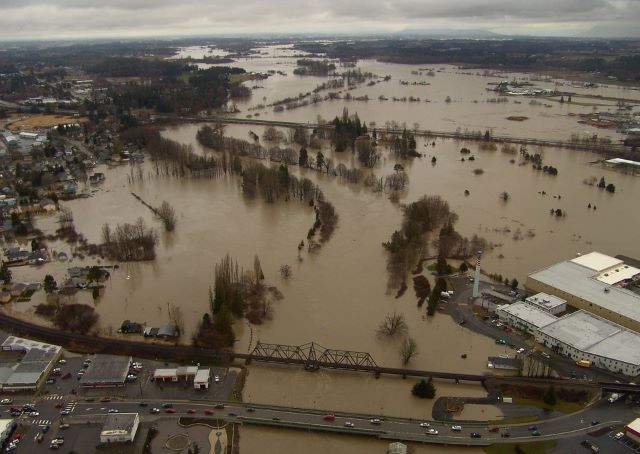Preparing for Natural Disaster Needs to Include Keeping Records Safe for Taxes
Natural disaster and taxes. One is definitely worse than the other.
But even if your records are destroyed in a calamity, the IRS still wants you to file and pay taxes. Without your important documents, your tax situation can quickly turn into its own disaster.
Hurricanes hardly happen in the Pacific Northwest (or Hertford, Herford and Hampshire, for you My Fair Lady fans). But there are plenty of other natural disasters we’re not immune to. Wildfires, windstorms, earthquakes, floods and landslides are just some of the misfortunes that can strike.
So here are some steps to take in case of disaster. Bear in mind that having complete records is not just important for taxes. Some of the same documents can help you filing an insurance claim.
Keep Key Documents Safe and Make Copies
Protect important documents by keeping them in fire- and waterproof containers. You’ll probably want to include birth certificates, deeds, titles, past tax returns, Social Security cards. A good idea is to make digital copies of these important papers and store them in the cloud (rather than on your own hard drive that could be hit by the same disaster).
Document Valuables and Other Property
Take photos of important possessions, and keep an inventory of the items. Include things like the make and model, price you paid, and the date you acquired it.
Reconstructing Records
If misfortune still manages to claim your records, you can try to reconstruct them. You can usually find financial records online – things like bank, brokerage and credit card statements.
For homeowners, you may be able to access important papers by contacting the title/escrow company that handled their purchase. In Washington state, county tax assessors usually have online records of the original purchase price and appraised value in succeeding years. For improvements, you can try contacting the contractor who did the work.
Natural Disaster and Taxes – Filing Your Return Can Help
If the federal government declared a state of emergency around the disaster that affected you, that will help with your taxes. With this declaration, you may get a delayed filing date. More importantly, your losses may be deductible. Take a look at this page on the IRS website to see if your disaster incident is included.
Links
IRS Publications 547 and 584 offer helpful information on casualty, disaster and theft losses.
Lastly, you can learn more about our services here!


Recent Comments